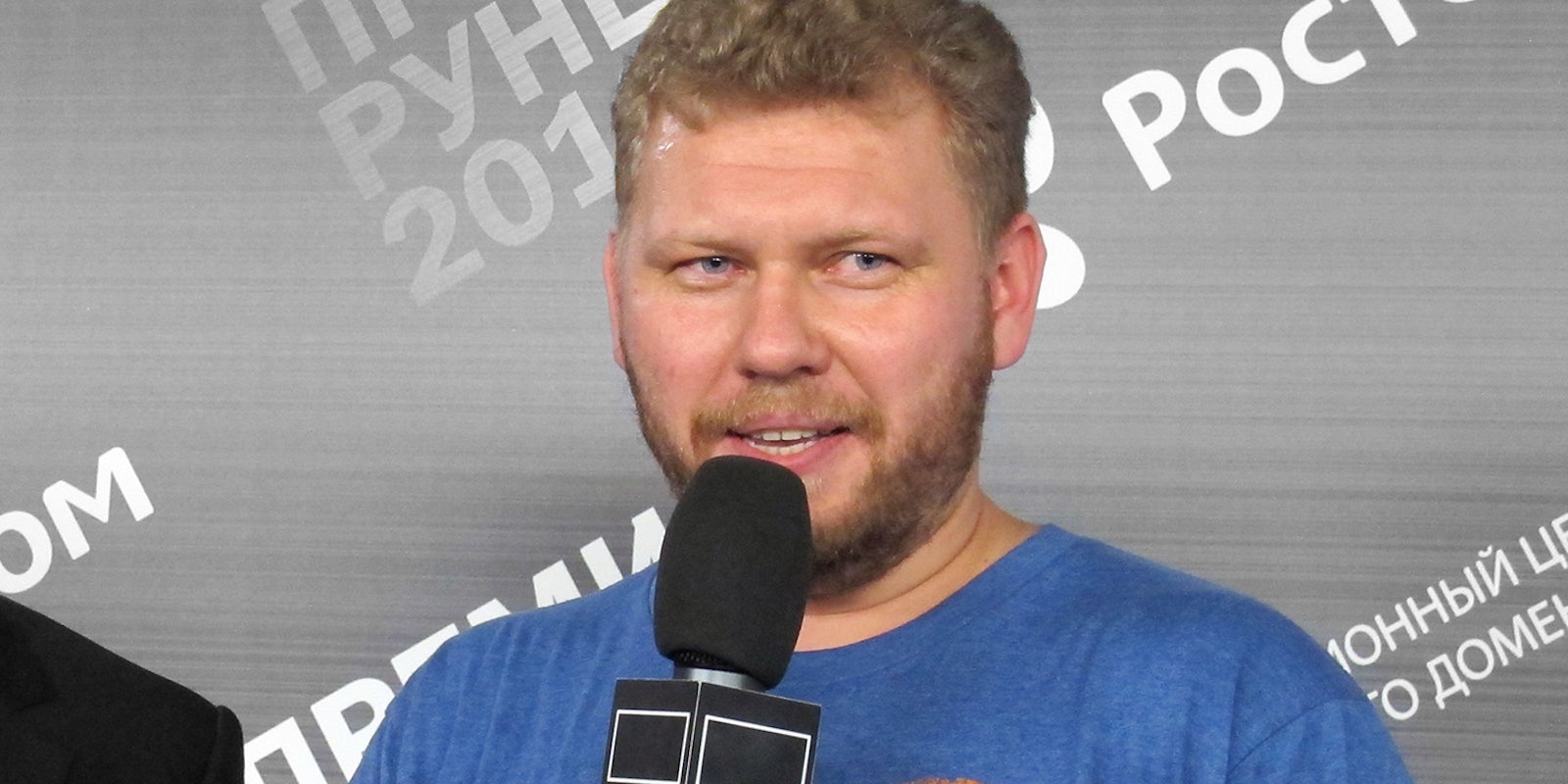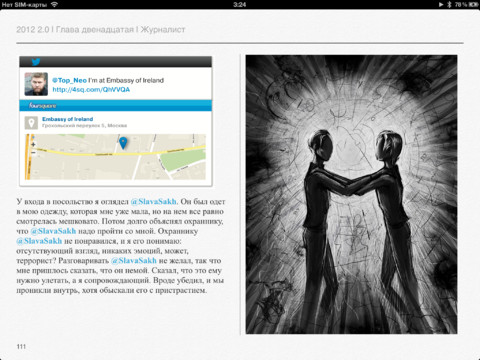Nickolay Turubar is a technologist who hates technology. Formerly a journalist in Moscow, Turubar now runs his own company, Chëza Team, and frequently appears on Russian TV and radio to comment on news and technology. Despite making his name in the world of technology, this entrepreneur is now quite critical of it.
“I started writing for Men’s Health before the first iPhone, right around the time that technology was beginning to become a part of men’s style. My writeups on gadgets were very simple, funny, and ironic without worshiping the item,” he said. “I wasn’t allowed to write the word ‘gadget’ because it was considered too geeky for our audience.”
When a media conglomerate bought his blog, NoMobile, he quit to start up Chëza Team. Without his even asking, all 10 of his employees came with him. “Now I’m more like a manager than a journalist,” he said.
Turubar’s latest effort is an fictional ebook called “2012 2.0” (currently only in Russian but soon to be translated into English) that’s 70 percent conventional text narrative peppered with 30 percent social media updates. He calls it “social context”—these tweets, Facebook statuses, Foursquare check-ins, and so on, are all from real people who agreed to let content from their own accounts to be used for the story. Reading the book is like peeking into a character’s thoughts and smartphone at the same time.
“The more I understand about how technology works, the more I understand that it is mainly bad.”
“The book is about the end of days in technology,” he said. “In the book, we are already living in the end of days but we don’t understand it. Soviet scientist Vladimir Vernadsky wrote a book that suggests the world is made up of many spheres, such as the biosphere, the geosphere, and so on. One of these proposed spheres is called the noosphere, and it’s where everything we think and everything that happens on this planet is stored. It’s as if the planet is thinking something itself.”
Throughout the plot of the book, holes open up in the noosphere, and people disappear into them. A famous blogger dies of a headache because he’s carrying the “karma” of his thousands of Twitter followers, then the same starts happening to other Internet celebrities. A company offers a service to wipe out all your Twitter followers to help you stay alive. It’s science fiction taking place in our present day world, and it paints an unflattering picture of technology.
Turubar’s warnings are hardly the first. The film Transcendence recently painted a harsh worst-case scenario on how mankind interacts with machines. The BBC series Black Mirror is something of a modern day Twilight Zone, except the episodic bad guy is only ever revealed to be technology or human nature. These works largely suggest technology will be humanity’s unraveling. Turubar suggests this unraveling has already begun.
“The more I understand about how technology works, the more I understand that it is mainly bad. It’s all about the marketing, and it’s not natural for people.” He ties our problems with technology to addiction, and he’s not far off. Using social media can flood our neural pathways with happy brain chemicals like dopamine and serotonin, same as a drug user indulging in his narcotic of choice.
To suggest that tech addiction is a truly addictive, medical issue is contentious in the medical community today. While the concept first propagated in the 1990s, it has yet to be recognized by the DSM, the diagnostic manual for mental health professionals. On at least an anecdotal level, it feels like we’re only using and relying on our smartphones more.
Turubar points out that today’s children are growing up in a world where it’s perfectly normal to engage with people strictly via smartphone. “There are people of the older generation, like us, who understand that we are addicted now. We know we could go skiing instead of using Facebook, but many children don’t understand the choice,” he said. “They think there ‘is an Internet,’ that it’s a physical thing. It’s alive for them. That’s the problem.”
Despite harrowing words, Turubar remains hopeful. “I hope it’s just another trend. The Internet is pretty young, and already we’ve seen it go through lots of trends.”
Photo via Krassotkin/Wikipedia (PD) | Remix by Jason Reed



